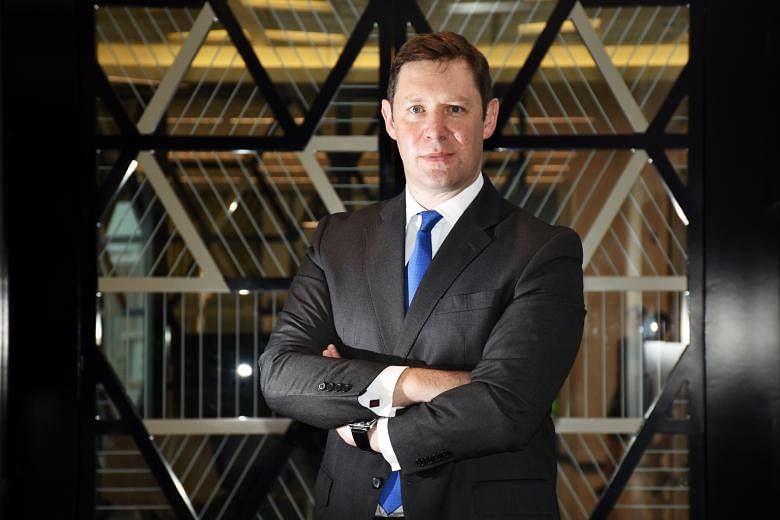Some might view insurance as a traditional, boring industry, but Mr David Guest sees insurance underwriters as the daredevils of the corporate world, because they take on risks that companies don't want to.
"Insurance makes the world go round. People feel very uncomfortable doing new things, investing, building things without their investment commitment being protected, without that risk being passed on. We enable companies to go out and do amazing things," said Mr Guest, 43, the recently installed Singapore country manager of insurance giant XL Catlin.
The British national described his 15-year career in crisis management as a wild roller-coaster ride.
He was thrown into the action after Sept 11, 2001, which he called the turning point of his career.
At the time, he was part of the Hiscox marine insurance team, a Lloyd's syndicate. He was then asked to join a two-person team writing terrorism insurance. There were only about 10 companies involved in the field, he recalled.
He knew little of what it would entail, but he hopped on board, driven by his interest in geopolitics.
"Immediately after 9/11, this small terrorism underwriting team that had business in seven countries began to get inquiries from all over the world, especially from the United States. The queues were out of the building... There was a huge expansion in demand; prices went up hugely. For underwriters, it was a powerful time," he said.
The team quickly grew from three members to 12, dealing with more than 150 countries. The work entailed travel to more than 30 countries for Mr Guest to assess political violence risks on the ground.
His area of focus is in political violence. While he declined to discuss specific cases, he cited Egypt during the Arab Spring to explain the complexity of underwriting and making claims for events of political violence.
"Depending on the day and time when a claim occurred, it was either a riot, an insurrection or a revolution - all of these things have specific definitions. Now, none of those things were terrorism. If clients had bought a terrorism policy in Cairo, they would have had a few difficulties getting a claim."
He said that both the corporate world and the insurance industry had to deal with a seismic change following 9/11.
"We saw companies completely reinvent their risk-management structure, business continuity planning… even something as simple as knowing where your people were on any given day, that was incredibly difficult then," he said. "Companies are more sophisticated now about knowing and assessing risks."
In his field of insurance, innovation is a necessity, given the global dimensions of political violence.
Citing the terrorist attacks in Paris, Brussels and Jakarta this year, he said terrorism was not just a problem "in one part of the world, in a developing/developed world kind of split".
Insurance companies were once focused on property damage, but there is a need now, he said, to look at the methods and objectives of political violence today to determine better ways to protect clients.
"If you look at recent events, you're not talking about large explosive devices, you're talking about guns, knives, grenades - much smaller, very focused on causing harm to people," he said.
He said XL Catlin was launching a global first - a "ground-breaking" product that would deal with covering business interruptions arising from bodily injuries during events of political violence.
Mr Guest has been a pioneer in the field of political risk, actively involved in the development of many of the broker and market wordings used in the market today.
His appetite for risk has also extended to his own career.
He was ranked London's top underwriter in the war, terrorism and political violence market by brokers in London in 2012 - which would have been a compelling reason for most people to stay to enjoy the career and contacts they had built up.
But Mr Guest decided to move to Singapore, along with his wife and two children, after he was told of his award, saying that he sought the next "big, hairy audacious goal".
Such was his commitment to moving to Singapore that he left insurance giant Hiscox, where he had worked for 15 years, to join XL Catlin, as Hiscox did not have an office here.
He moved to Singapore with his family in 2013.
He said he wanted to be closer to clients here and he also enjoyed the culture here, but he emphasised that his impetus for moving was the desire to take on new challenges.
His advice for young people? "Sometimes in your career, you need to do something not very safe. If you want something that's different, you've got to back yourself to meet that challenge."


